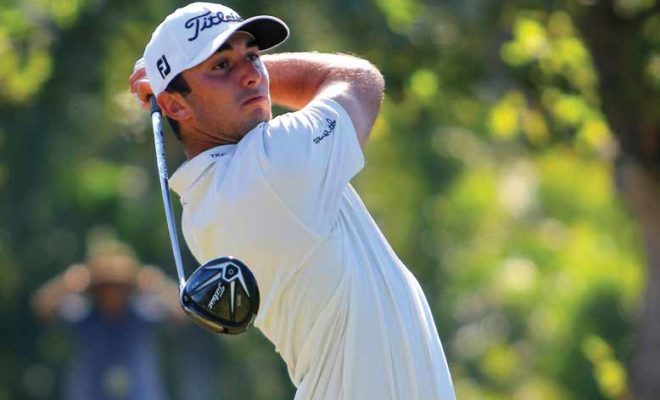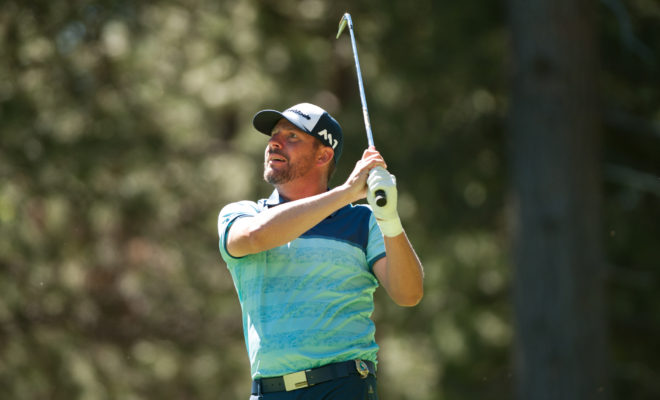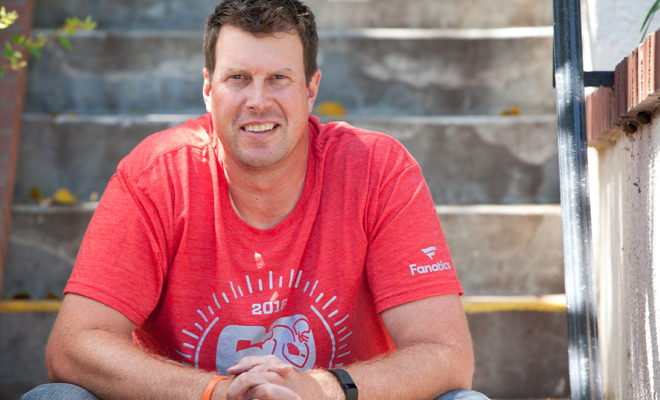Back For More: The Ups and Downs and Back Up Of Max Homa

WILL THE THIRD TIME prove the charm for Southern California’s Max Homa? Having earned his PGA TOUR card for the third time in five years, the 28-year-old has, conversely, lost said card twice along the same timeline.
Comical in character, yet ever-earnest about his trade, the 2013 NCAA individual champion at the University of California, Berkeley and a key member of the winning Walker Cup team that same year finds equal parts humor, mettle and reflection in the bumpy line of his professional playing career to date.
“It depends how you look at it,” he says. “Obviously, it’s quite frustrating to consider this for a third time. But I’m looking at it as a positive. Not everybody’s journey is the same. You look at people like Justin Thomas or Jordan Spieth — their paths seem to be a very straight line.
“And then there are others like me,” he continues, “where it’s kind of a balancing act. Hopefully, this will be the last time I go back and forth. I’m proud to be back out here; it’s shown fortitude. But, obviously, I don’t want to be going back to the Web every year.”
Homa’s early returns in this past autumn’s play offer, if nothing else, a straighter line. In his first three events back on TOUR he authored a T-60 at the Safeway Open in Napa, followed by a narrowly missed cut (1 shot) at the Sanderson Farms Championship and 71-71 missed cut at the Shriners Hospitals for Children Open in Las Vegas.
Looking at his body of work on the PGA TOUR, which includes a pair of top- 10s and 19 cuts made in 56 career events through early November of this year, Homa recognizes rubbernecking as part of what’s held him back.
“Just looking too much at what other people are doing,” he says. “And it’s not trying to be like them but, for example, I’d see a guy hit a great bunker shot or pitch, and start thinking I’d need to get better at that or wondering if I could do that, instead of just being myself. I just need to trust myself, trust my game.”
In 2017, Homa had no trust in his game. Across 17 PGA TOUR events, he missed 15 cuts.
“It sucked,” he reflects, admitting a degree of mental scar tissue. “I made
$18,000 on the PGA TOUR all season, and guys are playing for a million bucks a week. Golf has always been my sanctuary. But then all of a sudden, every time I went to the golf course, it was a battle. A lot of negative. It was hard, but I didn’t let it beat me.”
His game reaching a nadir, Homa found little solace in context.
“For anybody who does something on a public scale, it’s embarrassing (to perform that way),” he says. “Every job has its own tribulations, but the difference with athletics, with golf, is that the scoreboard shows all 156 people in a tournament; you’re ranked each week with how good you are at something. So, you’re at work and see that of the 150-something people at work that day, you did the 140th best job. And everybody knows it.”
ON THE REBOUND
Back on the Web.com Tour in 2018, little by little, Homa regained traction. Going back to the coach he had during college, Valencia-based Les Johnson, Homa would ultimately author nine top-25s in 27 events, including his stellar playoff push.
“It was ,like people say,‘One shot at a time,’” he says. “But it was that over seven or eight months. I had a lot of work to do.”
Working his game back into shape, Homa did continue to find levity via social media. An active (and oft-hilarious) tweeter, Homa used that outlet as a purging medium during the low times.
“A lot of people take themselves so seriously in golf, and while the game is a gentleman’s sport, I think it can also be fun,” he says. “So, if I think of a funny or goofy thing that’s happened on the golf course or in my life, social media is a great medium where you can show your personality and show that you’re not just a robot.”
While myriad of pro athletes employ the site to boost appearances or sponsors, Homa uses Twitter as a method of comical connection, empathy and self-deprecation.
“I love Twitter. You can really connect with people, and really show your personality in a sport where that can be difficult,” he says. “I’m in a position where I’m so far from famous in the golf world that I can kinda say what I want, and it’s not going to get spun in a negative way like it does with a lot of celebrities.”
Would a PGA TOUR win alter such a public extension of his personality?
“That would be a great problem to have,” he says, laughing. “If I were in a lofty golf position, yeah, I might have to reconsider. But, once a month, I’d still probably drop a stupid nugget; just to not fall completely into the robot thing.” Assessing his path, the amiable Homa smiles onward, seeing the prime opportunity before him.
“If you told me five years ago that, today, I’d still be on the PGA TOUR, I guess I’d be fairly pleased with that,” he says.
More consistent play in the fall season would seem to indicate a game rounding back into form.
“I’ve never put a limit on what I can do,” Homa concludes. “Physically, my game is quite good; mentally, I need to put more faith and belief in myself. I don’t know what my career will hold, but I really do believe I can do great things in this game. And I’m thinking that will start this year.”










